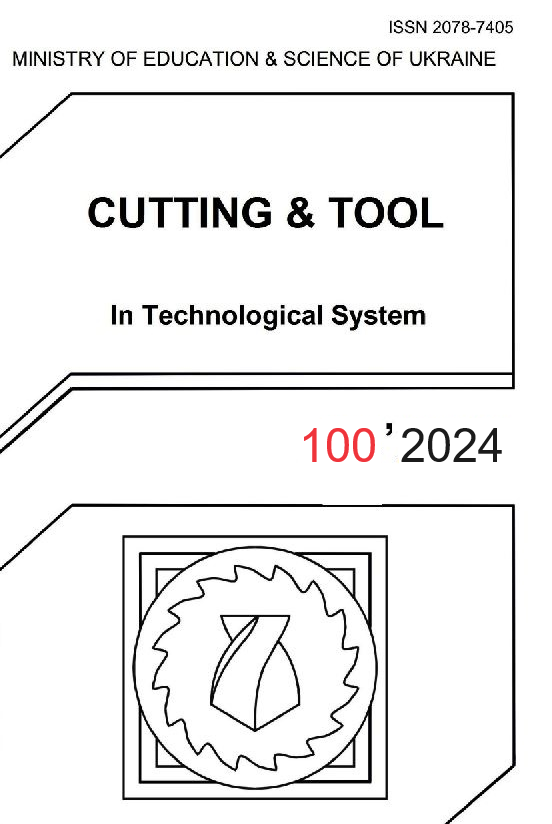IMPACT OF QUANTITY DISCOUNT ON PURCHASING COSTS IN BLENDING TECHNOLOGIES
DOI:
https://doi.org/10.20998/2078-7405.2024.100.02Keywords:
blending technologies, cost efficiency, optimisation, quantity discount, product qualityAbstract
Blending technologies are important in many sectors of industry, but are most prevalent in the chemical and food industries. They are playing an increasingly important role in the world economy despite the spread of electromobility. Nowadays, in addition to the technological aspects, there is a growing need to look at the logistical aspects, as logistics related costs account for a significant part of the cost of blending technologies. In this research work, the results of the analysis of the impact of quantity discounts, an important aspect of procurement activities related to blending technologies, are presented. A mathematical model is presented that can be used to investigate the impact of quantity discounts of components on profit and product quality. Based on scenario analyses carried out based on the mathematical model, it is demonstrated that the quantity discount can have a significant impact not only on total cost and profit, but also on the quality of the finished blended product.
References
Our World in Data: Fossil Fuels. URL: https://ourworldindata.org/fossil-fuels.
Solikhah, M.D., Karuana, F., Barus, B.R., Amri, K., Wimada, A.R.: Application of house of quality in assessment of biodiesel - Diesel fuel blending technologies, AIP Conference Proceedings (2023) 2646. https://doi.org/10.1063/5.0114040
Xie, Y., Wu, C., Liu, T., Chen, H., Li, H.: Improving ash fusibility and gasification reactivity of anthracite based on coal blending technology, Clean Coal Technology vol.29(3) (2023) pp. 114–121. https://doi.org/10.13226/j.issn.1006-6772.22040502
Wang, M., Wang, J., Gao, W.: Research progress in computer aided cotton blending technology, Fangzhi Xuebao/Journal of Textile Research vol.44(8) (2023) 225–233. http://doi.org/10.13475/j.fzxb.20220405002
Zhou, Y., Zhang, S., Lang, S., Liu, S., Yang, J.: Research progress of biomass blending technology in pulverized coal furnace for power generation, Clean Coal Technology vol.28(6) (2022) pp. 26–34. https://doi.org/10.13226/j.issn.1006-6772.CC22012502
Turner, J.W.G., Leach, F.C.P.: Using alternative and renewable liquid fuels to improve the environmental performance of internal combustion engines: key challenges and blending technologies, Alternative Fuels and Advanced Vehicle Technologies for Improved Environmental Performance: Towards Zero Carbon Transportation (2022) pp. 57–92. http://doi.org/10.1016/B978-0-323-90979-2.00015-9
Yan, S., Wu, Y., Qi, X., Feng, D.: Study on the blending technology and stability of low sulful marine fuel oil, Petroleum Refinery Engineering vol.51(3) (2021) pp. 5–8.
Cai, B., Qin, T., Han, Y., Yv, Y.L., Zhao, Z.Y.: Study on the application of coal blending technology based on quantum particle swarm optimization in large circulating fluidized bed boiler, IOP Conference Series: Earth and Environmental Science vol.354 (2019) 1. https://doi.org/10.1088/1755-1315/354/1/012005
Li, Z., Xu, K., Xue, Q., Liu, M., Wang, M.: Experimental study of online blending technology for residual marine fuel oil, Petroleum Processing and Petrochemicals vol.49(5) (2018) pp. 92–96.
Agustinus, A.: Multi Blending Technology (MBT): Mineral processing method for increasing added value of marginal reserve, IOP Conference Series: Earth and Environmental Science vol.118(1) (2018). https://doi.org/10.1088/1755-1315/118/1/012064
Ivanchina, E.D., Dolganov, I.M., Chuzlov, V.A., Belinskaya, N.S.: Intensification of flow blending technology in the production of motor fuels by the method of mathematical modelling, Chemical Engineering and Processing: Process Intensification vol.122 (2017) pp. 415–424. https://doi.org/10.1016/j.cep.2017.07.015
Pearson, R.J., Turner, J.W.G.: Using alternative and renewable liquid fuels to improve the environmental performance of internal combustion engines: Key challenges and blending technologies, Alternative Fuels and Advanced Vehicle Technologies for Improved Environmental Performance: Towards Zero Carbon Transportation vol.2014 (2014) pp. 52–89. https://doi.org/10.1533/9780857097422.1.52
Li, Y., Liu, M., Zhao, D.Z.: Blending technology and study on the stability of marine fuel, Shiyou Huagong Gaodeng Xuexiao Xuebao/Journal of Petrochemical Universities vol.25(6) (2012) pp. 14–17. https://doi.org/10.3969/j.issn.1006-396X.2012.06.004
Yang, M., Zhou, Y., Chen, J., Yu, M., Shi, X.: Application of genetic algorithm in blending technology for extractions of Cortex Fraxini, Zhongguo Zhongyao Zazhi vol.34(20) (2009) pp. 2594–2598.
Schut, J.H.: Novel melt blending technology commercialized in micro- & nanolayer films, Plastics Technology vol.55(4) (2009) pp. 29–30+45.
Bányai, Á.: Supplier selection in supply chain using cross-docking services for blending technology-based production processes, Academic Journal of Manufacturing Engineering vol.21(2) (2023) pp. 101–109.
Bányai, T., Veres, P.: Supply Chain Design for Blending Technologies, Sustainability vol.14 (2022) 14. https://doi.org/10.3390/su14148760
Nagy, G., Bányai, Á., Illés, B., Glistau, E.: Analysis of supply chain efficiency in blending technologies, Lecture Notes in Mechanical Engineering vol.2018 (2018), pp. 280–291. https://doi.org/10.1007/978-3-319-75677-6_23
Bányai, T.: Supply chain optimization of outsourced blending technologies, Journal of Applied Economic Sciences vol.12(4) (2017) pp. 960–976.
Bányai, Á., Illés, B., Schenk, F.: Supply chain design of manufacturing processes with blending technologies, Solid State Phenomena vol.261 (2017) pp. 509–515. https://doi.org/10.4028/www.scientific.net/SSP.261.509
Downloads
Published
Issue
Section
License
Copyright Notice
Authors who publish with this Collection agree to the following terms:
1. Authors retain copyright and grant the Collection right of first publication with the work simultaneously licensed under a Creative Commons Attribution License that allows others to share the work with an acknowledgement of the work's authorship and initial publication in this Collection.
2. Authors are able to enter into separate, additional contractual arrangements for the non-exclusive distribution of the Collection's published version of the work (e.g., post it to an institutional repository or publish it in a book), with an acknowledgement of its initial publication in this Collection.
3. Authors are permitted and encouraged to post their work online (e.g., in institutional repositories or on their website) prior to and during the submission process, as it can lead to productive exchanges, as well as earlier and greater citation of published work.

